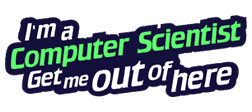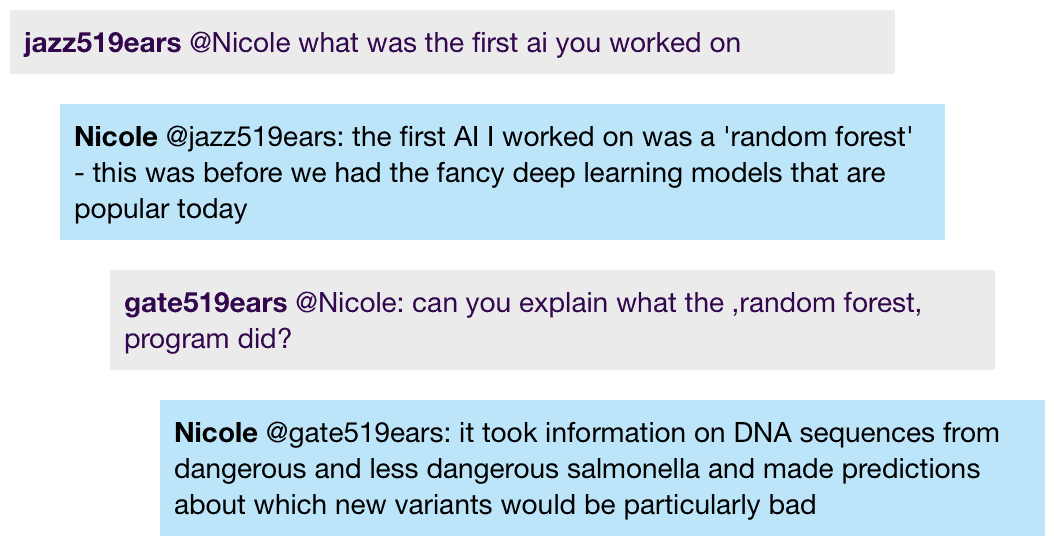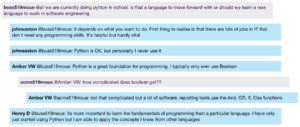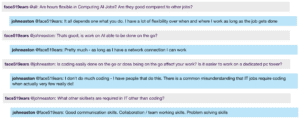
We celebrated National Coding Week with a week of Chats connecting students and people whose roles in STEM use computing skills.
Some popular topics and questions emerged across the week – what do we use AI for? How much does it help us? What could it mean for the future?
Discussions bridged the gap from the classroom to real life, showing the value of computing in students’ everyday lives.
Over 80 students across 5 schools joined us in celebrating National Coding Week. They connected with people whose work spans fields like cyber security, coding, software engineering, AI, and more. The variety of these roles showed how broadly computer science applies across industries and our daily lives, addressing real-world issues in health, infrastructure, and climate.
This year’s theme was AI, exploring the value of coding and AI in everyone’s professional and personal lives. Artificial intelligence was a popular Chat topic. Students discovered its role in fields like health, and how AI tools can help coders focus on what interests them.
West Hill students learned how AI is used in predicting disease, environmental issues, and criminal justice, which spawned some questions about reliability and ethics. A student from Highsted Grammar School even heard a real-life scenario of managing a client’s unethical request.
Some students engaged with computing beyond its technical side. They wanted to know about the more creative elements in tech careers and explored how their school subjects relate to technical work:

Amber VW: One of the things I do is create a space on my computer for creative things. A drawing, an idea, a poem. Just because my job is very technical doesn’t mean I don’t like being creative.

Student: I love DT also

Amber VW: I love DT, I’m currently making some bird houses to put in my garden and designing how I want my garage extension to look

Student: Finally somebody likes DT like me
Students from Aith Junior High School challenged the scientists to prove they’re real. They got thought-provoking answers about interacting safely online, and started thinking like real cyber security experts!
There were plenty more career insights shared, too. Chats broke down misconceptions about working in IT, showing you don’t need to be a programming expert – collaboration and problem solving can be key to success.
We hope the week’s activity inspired students to see the variety of ways they can get involved with computing, and perhaps sparked the curiosity of some future computer scientists!
🎓 Teachers, you can book an activity for your class below with a topic to suit you, including year-round Computing themes.
Book an Activity





